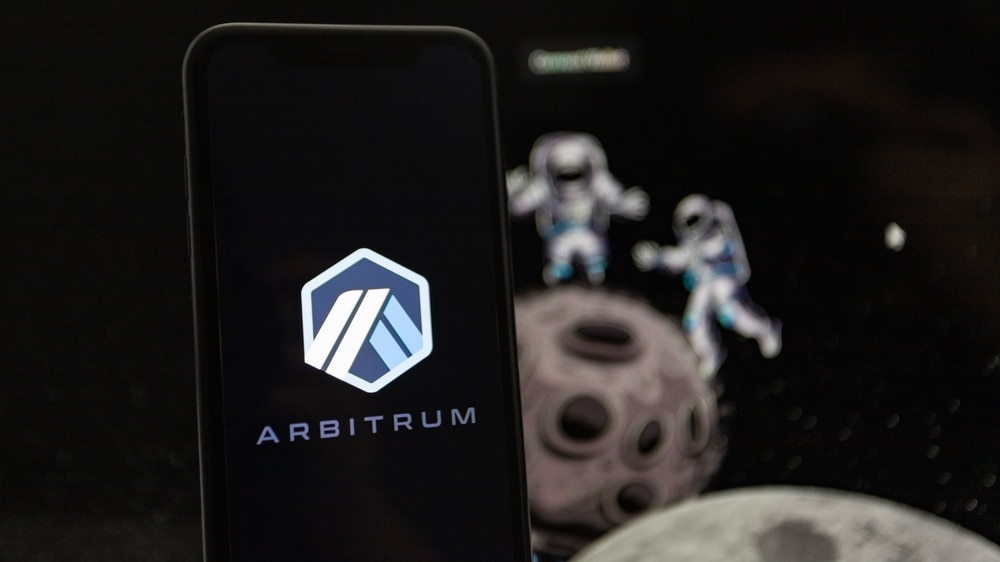Ethereum, the world’s second-largest blockchain, supports various types of crypto projects, from decentralized finance protocols to NFTs and ERC-20 tokens. However, the network has become expensive, and transaction speeds have slowed. To address these issues, Web3 developers have launched several scaling solutions, including Optimism, Blast, and Arbitrum, among others.
This article focuses on Arbitrum. Read on to learn how it works and why it has become popular among Ethereum users.
Arbitrum Explained
Known for its cheap transaction costs, Arbitrum is a leading layer-2 network built atop the Ethereum blockchain. Moreover, its transaction speeds are exceptional. While Ethereum can only process 14 transactions per second (TPS), Arbitrum, on the other hand, can handle over 35,000 TPS.
Further, since Arbitrum is compatible with the Ethereum Virtual Machine, developers of decentralized finance protocols on Ethereum can migrate their projects to the scaling solution without making any adjustments.
Arbitrum’s success in the past few years has attracted numerous investors. For instance, in 2021, the network’s developer Offchain Labs raised over $115 million in a funding round that involved leading crypto venture capitalists.
How Arbitrum Works
Simply put, smart contracts and Ethereum users ask Arbitrum to perform certain tasks by placing their transactions into the layer-2 network’s “inbox.” After that, Arbitrum processes them off-chain and provides transaction receipts. The method used to process the transactions is known as an optimistic rollup.
Understanding Optimistic Rollup
Before explaining in detail what optimistic rollup entails, it is important we define the term rollup. In crypto, a rollup is a technique adopted by blockchain networks to compress multiple transactions into one transaction. By bundling thousands of transactions into one, blockchains reduce the time and cost needed to process them.
Several types of rollups exist, with the optimistic rollup being among the most popular. To improve the transaction speeds, this rollup assumes that all transactions delivered in a blockchain’s “inbox” are valid. However, Ethereum validators can challenge the validity of the transactions processed on Arbitrum and reject invalid ones.
So, which currency do Arbitrum users use to settle transaction costs? While the scaling solution has its native token, ARB, it requires users to pay for gas fees using ETH, the native crypto for Ethereum.
Popular Decentralized Apps on Arbitrum
Low transaction costs and fast speeds have made Arbitrum a top choice among developers in recent months. As of October 2024, over 100 decentralized finance apps are running on Arbitrum. They include Curve, Abracadabra, Pendle, and SushiSwap. These protocols have a total value locked of nearly $2.5 billion. Notably, SushiSwap accounts for around 30% of the figure.
How to Use the Arbitrum Network
To explore the Arbitrum ecosystem, you first need to add the network to a compatible wallet. For the purpose of the guide, we’ll use MetaMask. Once you download the wallet from Metamask.io, write down the secret phase and enter a unique password. Next, go to Arbiscan.io and scroll down to the bottom of the homepage. On the right side, you will see an “Add to Arbitrum to MetaMask” button. Click on it so that the network can be added to your wallet.
With the Arbitrum blockchain added to MetaMask, you can now transfer ETH from an external source to explore various decentralized applications. If you wish to transfer ETH from Ethereum, use Arbitrum’s token bridge, which is accessible on Arbitrum.io. It usually takes roughly ten minutes for the bridged tokens to be deposited in your wallet.
The ARB Token
As mentioned, Arbitrum has its native crypto, ARB, which entered the market in early 2023. It is used as a governance token, allowing holders to vote on proposals raised via Arbitrum’s decentralized autonomous organization (DAO).
ARB is a top-50 cryptocurrency by market cap. According to data from CoinGecko, the digital asset has a market valuation of $1.92 billion. Its total supply stands at 10 billion, while its circulating supply is 3.61 billion tokens.
At Tokenhell, we help over 5,000 crypto companies amplify their content reach—and you can join them! For inquiries, reach out to us at info@tokenhell.com. Please remember, cryptocurrencies are highly volatile assets. Always conduct thorough research before making any investment decisions. Some content on this website, including posts under Crypto Cable, Sponsored Articles, and Press Releases, is provided by guest contributors or paid sponsors. The views expressed in these posts do not necessarily represent the opinions of Tokenhell. We are not responsible for the accuracy, quality, or reliability of any third-party content, advertisements, products, or banners featured on this site. For more details, please review our full terms and conditions / disclaimer.



